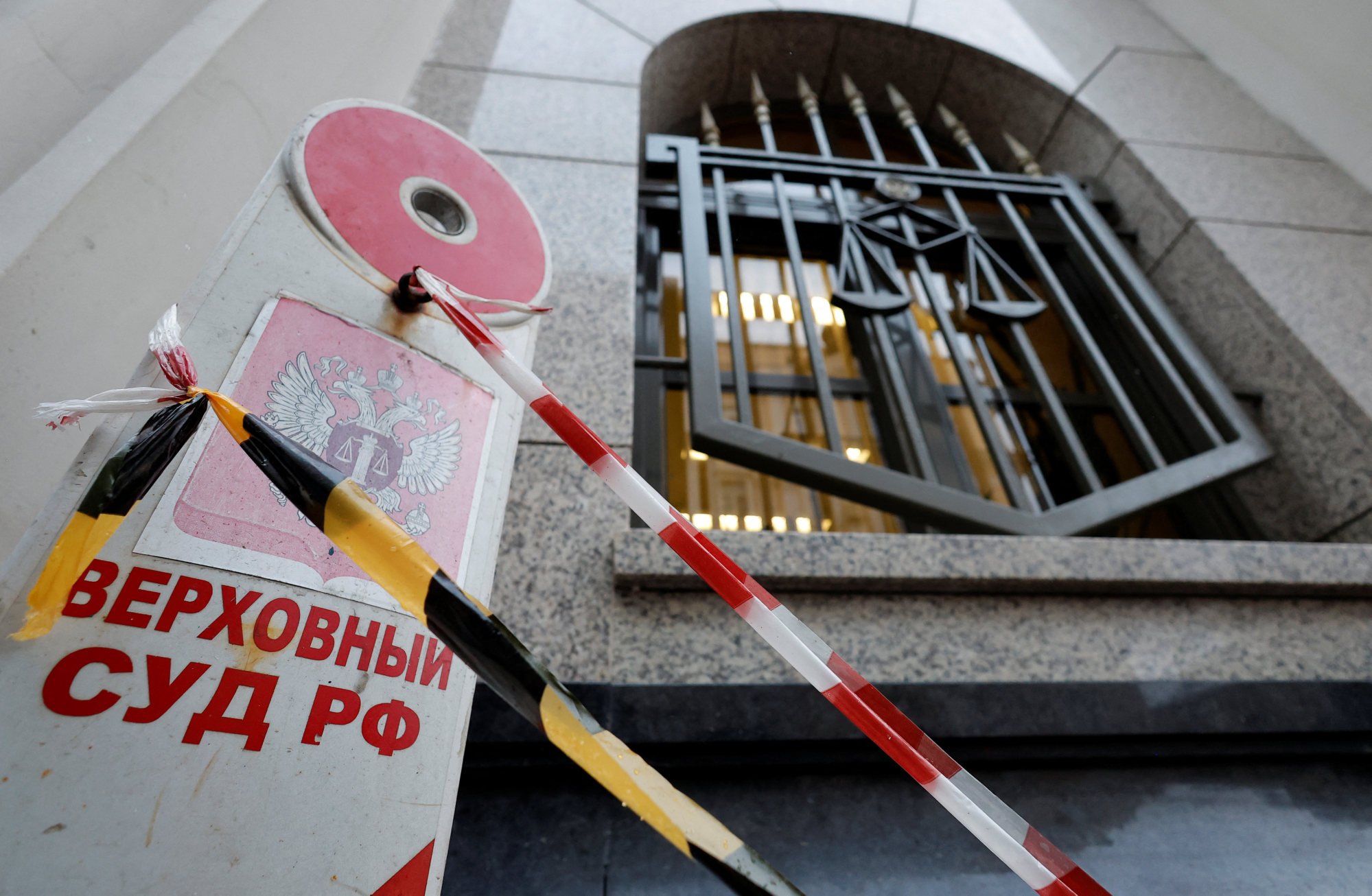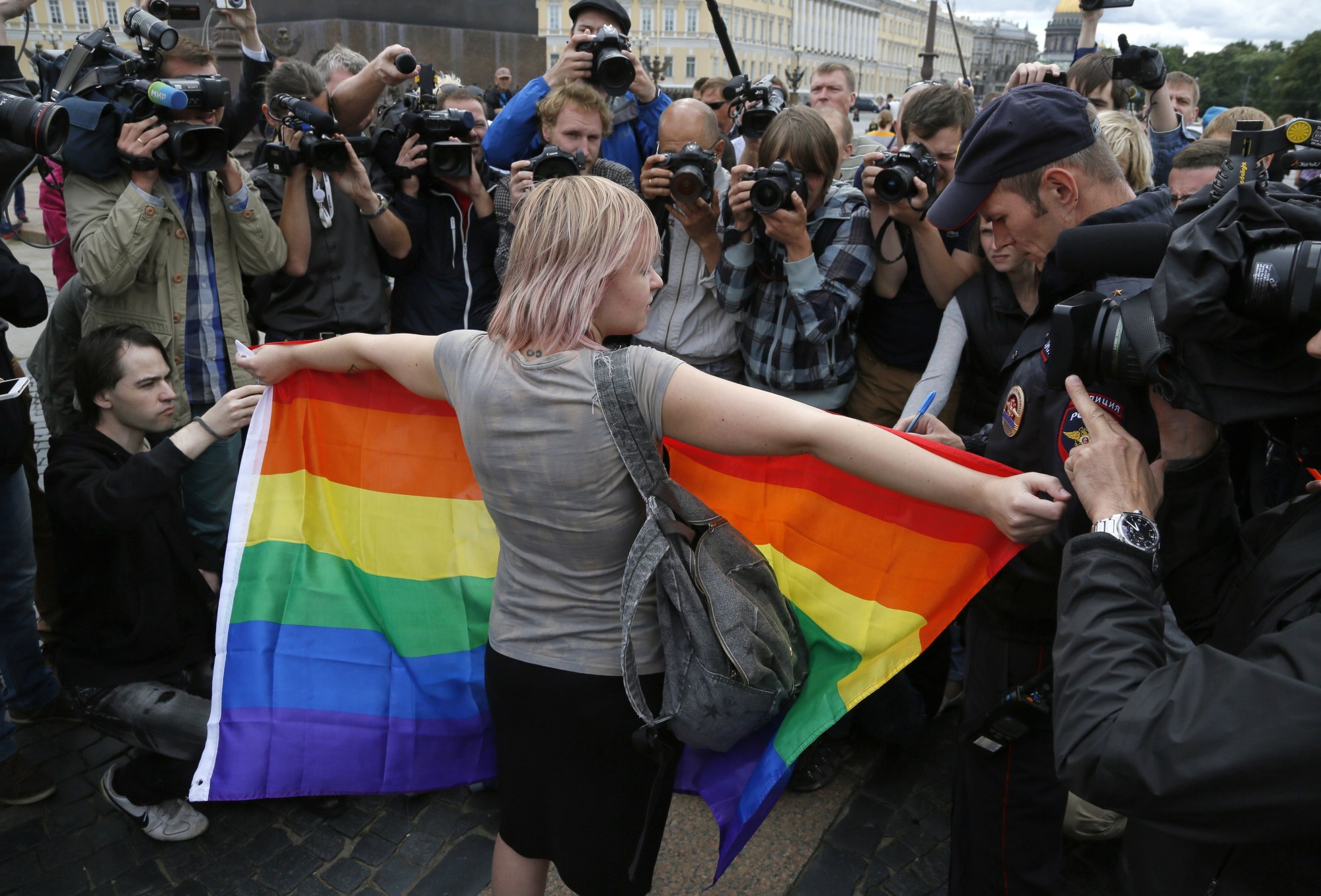UN human rights chief Volker Turk urged Russian authorities to “repeal, immediately, laws that place improper restrictions on the work of human rights defenders or that discriminate against LGBT people”.

President Vladimir Putin, expected shortly to announce that he will seek a new six-year term in March, has long sought to promote an image of Russia as a guardian of traditional moral values in contrast with a decadent West.
In a speech last year, he said the West was welcome to adopt “rather strange, in my view, newfangled trends like dozens of genders, and gay parades” but had no right to impose them on other countries.
Putin’s spokesman Dmitry Peskov told reporters before the court decision was announced that the Kremlin was “not following” the case and had no comment on it.
The court took around five hours from the start of proceedings to issue its ruling. The hearing was closed to media, but reporters were allowed in to hear the verdict.
Vladimir Putin to run for election, stay in power until at least 2030: report
Vladimir Putin to run for election, stay in power until at least 2030: report
LGBTQ activists had seen the decision as inevitable after the November 17 request by the justice ministry, which said – without giving examples – that “various signs and manifestations of extremist orientation, including the incitement of social and religious discord” had been identified in the activities of the LGBTQ movement in Russia.
Outside the court, LGBTQ activist Ada Blakewell said the ruling belied official statements that Russia does not discriminate against LGBTQ people and affords them equal rights.
She said she had been subjected for a year, against her will, to “conversion therapy” to persuade her that she was not a transgender woman.
“In practice, after the adoption of this lawsuit, I won’t be able to talk about conversion therapy,” she said.

People interviewed on the streets of Moscow had divided views.
“I’d like this world to be a free place where people can love whoever they want, although my attitude to all this is neutral because I’m not in their shoes,” said a young woman named Lera. “But if I were forbidden to love, that would be very painful.”
Daniil, a man in his 20s, said same-sex relationships were “not normal”.
“I believe most people at least that I know, my friends and acquaintances, share a negative attitude towards homosexuality. That’s why it’s the right decision for our country,” he said.
Putin foe Alexei Navalny has 19 years added to his prison term
Putin foe Alexei Navalny has 19 years added to his prison term
More than 100 groups are already banned in Russia as “extremist”.
Previous listings, for example of the Jehovah’s Witnesses religious movement and organisations linked to opposition politician Alexei Navalny, have served as a prelude to arrests.
Ravina Shamdasani, spokeswoman for the UN Human Rights Office, said the LGBTQ community’s situation in Russia was “just going from bad to worse”, and the lack of clarity around the court’s definition of “LGBT movement” left the law open to abuse.
“What this means for the LGBTQ community is its further repression of their fundamental rights,” she said.

